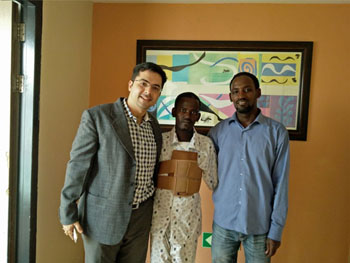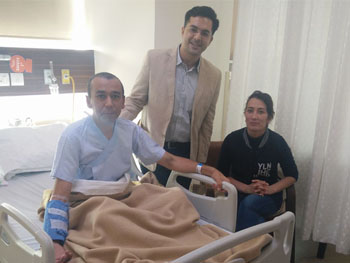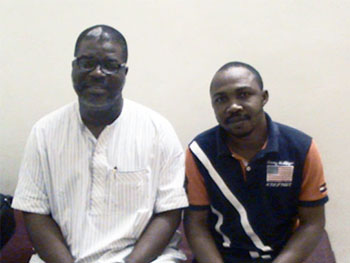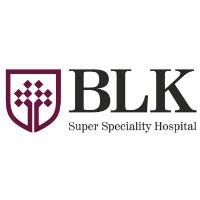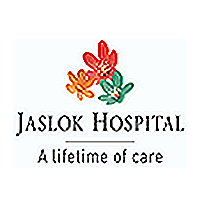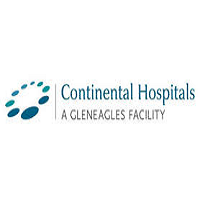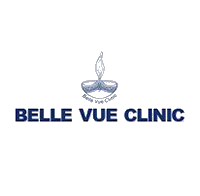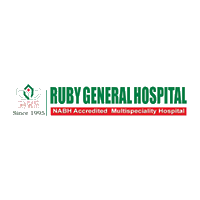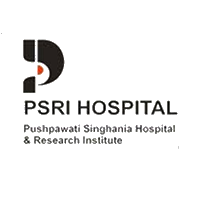Low Cost Bone Marrow Transplant Top Hospitals Best Doctors India
Organ Donation – an overview
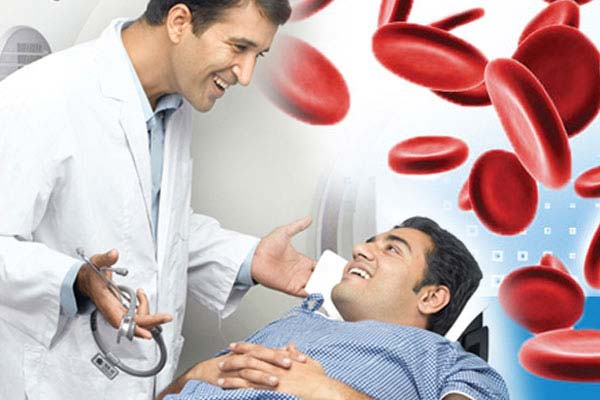
With Organ Donation, becoming a very prevalent form of treatment today, there are many patients who are benefitting from this. It is equal to gifting a new lease of life to another human being.
It can be referred to as the best legacy that we can leave behind. Today, organ donation provides hope to a plethora of people across the globe. But unfortunately, the number of people awaiting organ donation is always higher than the people willing to donate. While our body overall depreciates during the lifetime, sometimes diseases or genetics may attack and destroy one specific organ while the remaining body remains comparatively healthier. It depends on which organ is wearing down. There are various life-sustaining treatment options before transplantation that can be helpful to improve your health. For example, when it comes to kidneys, dialysis helps a person who has damaged kidneys. But, the rest of the body has to bear the brunt due to the side effects. A person on dialysis faces a higher risk of cardiovascular disease because dialysis brings down the amount of antioxidants that generally fight toxins within our body
Video - Bone Marrow Transplant Surgery in India
Types of organ donation
There are principally two types of organ donation – living donation and deceased donation.
- Living organ donation
Living donation is when someone donates a portion of their liver or one of their kidneys to a patient while the donor is still alive. Living donors can donate one kidney, a lung, or a portion of the liver, pancreas, or intestine.
Free Consultation
We save lives with best BONE MARROW TRANSPLANT in India!
A Fresh New Life to the Patient Suffering from Bone Marrow

Mohamed Tamim bin Abdullah from Qatar
This is a story of distress and pain residing in Qatar. There lived a happy-go-lucky family full of positivity, energy, and sparkle to live life to the fullest. Amidst this beauty of life, one day an entirely peaceful and serene world comes shattering down when their 5-year-old son was diagnosed with a blood disorder known as leukemia.
Low cost Bone Marrow Transplant in India
This offers an alternative for people waiting for a deceased donor, and it increases the number of organs available, saving more lives.Living donors can be friends, spouses, family members, or altruistic donors, who wish to help someone in need.
- Deceased organ donation
It is important to remember, that deceased donation is only possible after all attempts to save the patient is life have been tried, and brain death has been declared. Even though the person, who is brain dead, is technically dead, but the organs would be still functioning hence suitable for organ donation. Such a donor can donate kidneys, liver, lungs, heart, pancreas, and intestines. In 2014, hands and faces were added to the organ transplant list.
About Bone Marrow Transplant
A Bone Marrow Transplant in India is a highly specialized medical procedure performed to replace the bone marrow that has been damaged or destroyed by a disease, an infection, or chemotherapy. The BMT procedure is about transplanting the blood stem cells, which travel to the bone marrow, where they produce new blood cells and boost the growth of new marrow.
Bone marrow is a spongy, fatty tissue inside your bones and it creates the following parts of the blood:
- Red blood cells, which carry oxygen and nutrients throughout the body
- White blood cells, which fight infection
- Platelets, which are responsible for the formation of clots
Bone marrow also contains immature blood-forming stem cells known as hematopoietic stem cells, or HSCs. Most cells are already differentiated and can only make copies of them. However, these stem cells are unspecialized, meaning they have the potential to multiply through cell division and either remain stem cells or differentiate and mature into many different kinds of blood cells. The HSC found in the bone marrow will make new blood cells throughout your lifespan. Fill up the form to get Low Cost Bone Marrow Transplant in India at the Best Hospitals for Bone Marrow Transplant in India.
A Bone Marrow Transplant replaces the damaged stem cells with healthy cells, which ultimately helps our body in making enough white blood cells, platelets, or red blood cells to avoid infections, bleeding disorders, or Anaemia. Healthy stem cells can come from a donor, or they can come from the patient is own body. In such cases, stem cells can be harvested, or grown, before the Chemotherapy or Radiation treatment is initiated. Those healthy cells are then stored and used during transplantation. Contact us to know the Success Rate of Bone Marrow Transplant in India.
When is Bone Marrow Transplant needed?
BMTs are performed, when a person is marrow isnt healthy enough to function properly. This could be due to chronic infections, disease, or cancer treatments. Some reasons for a Bone Marrow Transplant include:
There are certain conditions for which BMT is recommended.
Malignant conditions:
- Acute Lymphoblastic Leukaemia (ALL)
- Acute Myeloid Leukaemia (AML)
- Chronic Myeloid Leukaemia (CML)
- Hodgkin Lymphoma
- Non-Hodgkin Lymphoma
- Myelodysplastic syndrome (MDS)
- Multiple Myeloma
- Neuroblastoma
- Other rare cancers of childhood
Non Cancerous Conditions:
- Thalassaemia, which is an inherited blood disorder; where the body makes an abnormal form of haemoglobin, an integral part of red blood cells
- Peritoneal dialysis, in which waste products are removed by passing chemical solutions through the abdominal cavity;
- Sickle Cell Anaemia, which is an inherited blood disorder that causes deformed red blood cells
- Aplastic Anaemia
- Fanconi Anaemia and other bone marrow failure syndromes
- Inborn errors of metabolism
- Congenital Immunodeficiency syndromes
Bone Marrow Transplant Surgery Cost in India
The average Cost of Bone Marrow Transplant Surgery in India is around Rs.16,00,000 ($20,000) to Rs.32,00,000 ($40,000). The cost depends on several factors like the type of procedure, surgeon's fees, hospital charges and other associated costs.
List of Best Hospitals for Bone Marrow Transplant in India
- Fortis, Delhi
- Max Healthcare Hospital, Delhi
- Apollo Hospital, Delhi
- Blk Super Speciality Hospital, Delhi
- Medanta Hospital, Gurgaon
- Paras Hospital, Gurgaon
- Jaslok Hospital, Mumbai
- Sir H N Reliance Foundation Hospital, Mumbai
- P D Hinduja Hospital and Medical Research Centre, Mumbai
- Kokilaben Dhirubhai Ambani Hospital, Mumbai
- Patel Hospital, Mumbai
- KIMS Hospital, Hyderabad
- Continental Hospital, Hyderabad
- Manipal Hospital, Bangalore
- Global Hospital, Chennai, Tamil Nadu
- Columbia Asia Hospital, Bangalore
- Aster Medcity, Kochi Kerala
- Belle Vue Clinic, Kolkata
- CIMS, Gujrat
- Ruby General Hospital, Kolkata
- Sahyadri Hospital, Pune
- Jupiter Hospital, Thane, Maharashtra
- Artemis Hospital, Gurgaon
- Lilavati Hospital, Mumbai
- Narayana Health, Bangalore
- Nanavati Super Speciality Hospital, Mumbai
- Amrita Hospital, Kochi
- Miot International, Chennai, Tamil Nadu
- Rajiv Gandhi cancer Institute & Research Centre, Delhi
- Pushpawati Singhania Hospital & Research Centre, Delhi
List of Top Bone Marrow Transplant Surgeons in India
- Dr. Rahul Bhargava
- Dr. Aniruddha Dayama
- Dr. Ashok Kumar Vaid
- Dr. Nitin Sood
- Dr. Vimal Kumar G
- Dr. Ashish Dixit
- Dr. Pravas Chandra Mishra
- Dr. Rahul Naithani
- Dr. Gaurav Dixit
- Dr. Mansi Sachdev
- Dr. Suresh Advani
- Dr. Kannan Subramanian
- ORGAN TRANSPLANTS PERFORMED THIS YEAR- 73
- PATIENT SATISFACTION- 97%
- DEDICATED SUPPORT PHYSICIAN FOR EACH PATIENT
- INTERNATIONAL MEDICAL CLINICS- 6 EVERY YEAR
- CHARITY SUPPORT TIE UPS FOR ECONOMICALLY POOR PATIENTS
Send your query to know the Average Cost of Bone Marrow Transplant in India at the Best Bone Marrow Transplant Hospitals in India.
Request your appointment with the Top Bone Marrow Transplant Surgeons in India at the Best Bone Marrow Transplant Hospitals in India.
Phone Numbers Reach Us India & International:
+91 9765025331
Types of Bone Marrow Transplant
Autologous Transplant
In this, stem cells are taken from the patient either by bone marrow harvest or apheresis (peripheral blood stem cells) and then given back to the patient after the treatment
Allogeneic Transplant
In this, the donor has the same HLA type as the patient. Stem cells are taken either by bone marrow harvest or apheresis (peripheral blood stem cells) from a HLA matched donor, mostly a brother or a sister. Other donors for Allogeneic Bone Marrow Transplants include the following:
- An identical twin - A syngeneic transplant is an allogeneic transplant from an identical twin. Identical twins are considered a complete genetic match for a transplant.
- Unrelated transplants (UBMT or MUD, for matched unrelated donor) - The HLA matched stem cells are from an unrelated donor, usually found through the national registries.
- Umbilical Cord Blood transplant - Stem cells are taken from an umbilical cord immediately after delivery of an infant. The stem cells are tested, typed, counted and frozen until they are ready to be transplanted.
- Haplo Identical Transplant This is a type of Allogeneic Transplant
Fill up the form to get free consultation for Bone Marrow Transplant by Top Doctors in India.
Haplo Identical Transplant This is a type of Allogeneic Transplant
Evaluation
Before this procedure, the patient has to go through some tests to help the doctors evaluate the overall health condition of the patient.
- An electrocardiogram (ECG) in this is a test used to check the patient is heart's rhythm and electrical activity.
- An echocardiogram in a scan used to check the heart and nearby blood vessels
- An X-ray and/or computerised tomography (CT) scan to check the condition of organs like lungs and liver
- Blood tests to check the level of blood cells and assess the functioning of the liver and kidneys
- Also, if the patient is suffering from Cancer then a biopsy may be needed
Harvesting the stem cells
There are three main ways to do this:
- From blood in where the stem cells are removed from your blood using a special machine
- From bone marrow in where a procedure is carried out to remove a sample of bone marrow from the hip bone
- From cord blood in where donated blood from the placenta and umbilical cord of a newborn baby is used as the source of stem cells
How is the procedure performed?
Treatment with high doses of Chemotherapy and sometimes Radiotherapy will be needed before the stem cells can be transplanted. This is called the Conditioning treatment. This is done in order to:
- destroy the existing bone marrow cells to make room for the transplanted tissue
- destroy any existing Cancer cells
- stop the patient is immune system working in this is to reduce the risk of the transplant being rejected
The actually transplant procedure is done a day or two days after the conditioning is done. Steps involved:
- The first step is the collection of the bone marrow or stem cells (the harvest) from the donor. The umbilical cord blood is a rich source of stem cells
- The second step is to completely destroy the existing bone marrow and thereby help the patient in receiving the new stem cells
- The third step is to infuse the bone marrow or the stem cells through the intravenous route, like a blood transfusion. There may be no signs of a new bone marrow growing for two to three weeks, and occasionally it may be a few months before the new bone marrow produces all the components of the blood sufficiently
- The stem cells are passed slowly into the patient is body through the central line. This process often takes about a couple of hours
- The transplant procedure is not painful and the patient is awake throughout
Get in touch with us to know the Bone Marrow Transplant Cost in India and schedule a quick appointment with the Best Bone Marrow Transplant Specialists in India.
Recovery
The patient has to stay in the hospital for a few weeks. During the recovery, the patient may feel weak, may have vomiting or Diarrhoea or even loss of appetite. The patient will be going through blood and platelet transfusions because of the low number of red blood cells. Fill up the form to avail free consultation with the Top Bone Marrow Transplant Surgeons in India.
Any Risks associated?
There is no doubt that BMT is a very intricate procedure and it may have significant risks or some serious complications. The success of this procedure usually depends on a stage of disease, duration of disease and patient's medical condition at the time of transplantation.
Generally, the risks can be reduced if:
- The patient is young in studies show that the younger the patient is, the more likely are the chances of the treatment being a success
- If the patient receives stem cell donation from a sibling that is from a brother or a sister
- If the patient does not have any serious health conditions apart from the condition he or she is being treated for
Why choose India for this procedure?
The field of medicine has dramatically evolved over the years, and is continually getting updated, making India an extremely matured country as a medical tourism destination. The Top Bone Marrow Transplant Centres in India has world-class facilities and the Best Bone Marrow Transplant Doctors in India who are skilled and highly qualified. Uncompromised quality of services, superlative care and cost-effectiveness are some of the key factors that attract people across the globe to come to India for availing the required cure. Also, India offers quality at an affordable cost and this is an unbeatable advantage for Bone Marrow Transplant at Top Hospitals in India. This confluence of highest quality of healthcare services and cost advantage is unique for India. There are many centres of excellence in India, which proffer the best of health amenities, especially related to Bone Marrow Transplant, to patients around the globe.
Phone Numbers Reach Us India & International:
+91 9765025331
Our Success Stories
Mr.Abba Mehmoud Musa, Sudan
Sudan Patient's Successful Liver Transplant Journey to India
Many a times due to certain reasons like excessive alcohol, fat deposit or any other complication, the liver gets damaged...
Read More
Mr. Sartaj Musumonov, Uzbekistan
Success Story of Bone Marrow Transplant Surgery in India
It is extremely difficult to understand the medical situation if one is not from a medical background. Here is one more...
Read More
Mr. Abubakar Abdullahi Jam, Nigeria
A New Phase of Life after Kidney Transplant Surgery India
Mr. Abubakar Abdullahi Jama was mournful due to high constant fever, diarrhea, and vomiting. He felt that it was normal...
Read More
Tags
FAQ's Bone Marrow Transplant in India
- 1.Am I at a higher risk of getting infections from an unrelated bone marrow transplant?
-
Generally, the risks are reduced if you:
- Are young as studies have shown the younger you are, the more likely the treatment is to succeed
- Receive stem cell donation from a sibling (brother or sister)
- Have no serious health conditions except the condition you're being treated for
- 2.Is there any risk to the donor?
-
This is an extremely safe procedure for the donor and the patient can return to normalcy within 6 months to a year post successful transplant. The risk to donor is nearly negligible; thanks to the modern day advancements. However, they may get fever and or body pain for a day or so whichever is manageable. Also the donor need not be admitted and does not require anesthesia.
- 3.What if my patient does not have a matched sibling?
-
If the patient does not have a matched sibling, then the other options available are unrelated donor and partially matched sibling donor transplant. However, the cost can significantly go up in matched unrelated donor transplant due to costs involved in procuring stem cells. There is an increased risk of GvHD and infections in the partially matched transplant.
- 4. What happens if there is no donor available?
-
Nowadays we can perform the unrelated donor search from the international bone marrow donor registries. There are already several patients who have been benefitted from transplants with bone marrow or stem cells being donated at international centers and brought to India.
- 5. How many times can I donate?
-
Technically you can donate several times in your life as your marrow and blood stem cells regenerate completely in around 4-6 weeks. However, it is rare to come up as a match for several people- you may never get called as a potential match or might get called once or twice in your lifetime. Being a donor for someone does not stop you from donating to someone else in the future if the need arises. Also it does not affect your ability to receive a transplant in the future in case you need one.
- 6.Is BMT similar to a kidney transplant?
-
No, Bone Marrow Transplant is a medical procedure. Mostly, the stem cells are collected via peripheral vein and the whole procedure is like donating blood or platelet. In some patients Bone marrow harvest is performed involving the general anesthesia to the donor.
- 7.What Is the Average Recovery Period for Transplantation Patients?
-
The recovery period depends on each patient. On an average, the inpatient stay is between 21 and 35 days. Then the patients are discharged to the outpatient status. Post-transplantation patients are monitored closely in the physician's clinic. During this time, patients have regular blood draws to monitor cell counts, undergo physical exams, receive nutritional counselling, etc.
The patient's cells counts generally continue to develop during the recovery period and it may take a year or two before the immune system is functioning fully. Infection can cause serious problems for patients during this period and sometimes death. All patients are encouraged to limit their exposure to the infectious diseases, stay away from crowds, and stay away from people with flu viruses, colds, or any other infectious disease.
- 8.What are post-treatment precautions?
-
During the post transplant, the patient should eat hygienic food and avoid crowded places. Consult the doctor immediately if in case you tend to witness the symptoms of GvHD such as skin rashes, diarrhea, and jaundice.
- 9. Will I ever be able to lead a normal life?
-
Yes, patients can return to his/her normal routine in 6 months ? 1 year post successful transplant. However, he/she needs to follow-up with transplant centre as advised.
- 10. Do I require continuous follow-ups?
-
This depends upon the disease and type of transplant whether autologous or allogenic. Patients need to follow up for around 1-2 months in case of autologous transplant, whereas at least three months follow up is necessary in case of an allogenic transplant. A longer follow up is required if in case the patient develops any complications.
- 11.Are there any complications?
-
You can experience:
- Graft versus host disease (GvHD): A life threatening condition that develops after the stem cell transplant when the new cells are not able to recognize the organs and tissues of the recipient's body. It may cause a skin rash, loose stool or pain abdomen, and itching.
- Respiratory problems: Causes inflammation of the airway and serious problems of the pulmonary system.
- Low blood cells and low platelets that can cause excessive bleeding in the lungs, brain, and gastrointestinal tract.
- Bacterial Infections can cause a permanent organ damage
- There can be complications from the conditioning regimen after transplant when the bone marrow is severely depleted. Patient needs to be monitored in special HEPA filter rooms to prevent these complications.
- 12.What is the success rate?
-
Usually the success of bone marrow transplant depends on stage of disease, duration of disease and patient's condition at the time of transplantation. Due to the modern day medicines and technological advances, you can expect a cure rate of 90% if BMT is performed at age of 3 years for thalassemia while it drops to 80% if done at the age of 7 years.
- 13.Will I be able to resume work after treatment?
-
An ideal situation for the donor should be to stay near the transplant center for a week or so after the transplant as patient may need platelet support from his donor.

